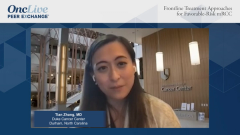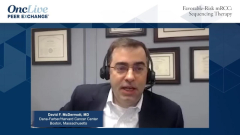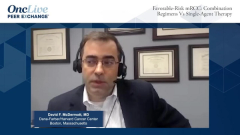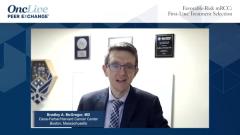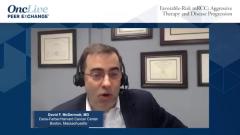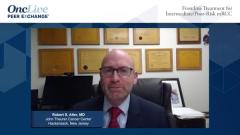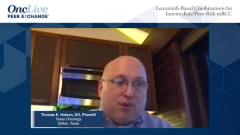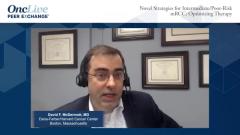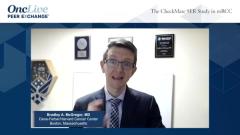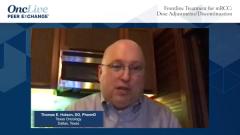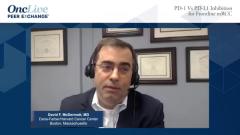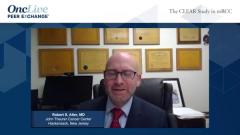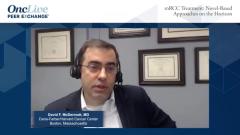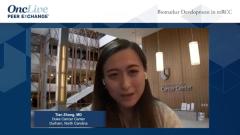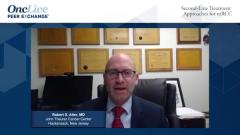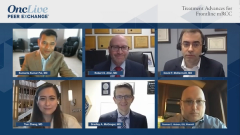
Treatment Advances for Frontline mRCC
Bradley A. McGregor, MD, of the Dana-Farber Cancer Institute, reacts to the emergence of new treatment gaps associated with novel combination regimens as first-line therapy for patients with metastatic renal cell carcinoma.
Episodes in this series

Sumanta Kumar Pal, MD: Hello, and welcome to this OncLive® Peer Exchange® titled “New First-Line Combination Therapies in Advanced Renal Cell Carcinoma.” I’m Dr Sumanta Pal from the City of Hope Comprehensive Cancer Center in Duarte, California. I have several amazing colleagues joining me in this discussion: Dr Bob Alter from the John Theurer Cancer Center in Hackensack, New Jersey; Dr David McDermott from the Dana-Farber Cancer Institute in Boston, Massachusetts; Dr Tian Zhang from the Duke Cancer Center in Durham, North Carolina; Dr Brad McGregor, a dear friend of mine, from the Dana-Farber Cancer Institute in Boston, Massachusetts; and Dr Tom Hutson, a very close friend, from Texas Oncology in Dallas, Texas. All of us know each other quite well. This is going to be a perfect setup for a lot of exciting debate.
We’re going to focus on how recent clinical trials and new FDA approvals are shaping the way we treat metastatic kidney cancer. There has been tremendous amounts of change over the past 2 to 3 years. We’ve included a couple of key topics that really dovetail on some of the themes you may have heard from the 2021 ASCO GU [American Society of Clinical Oncology Genitourinary Cancers Symposium]. We’re going to try to get to the bottom of how these abstracts are going to impact our clinical practice. Let’s get started on the topic of metastatic renal cell carcinoma first-line therapy. Brad, I’m going to give you the challenging task of summarizing in 2 minutes or less everything that’s happened in the frontline space in the past several years.
Bradley A. McGregor, MD: It’s quite amazing as far as renal cell carcinoma. Historically it has not responded to cytotoxic chemotherapy. For decades, there was nothing that worked. Then we had the advent of VEGF tyrosine kinase inhibitors [TKIs], which revolutionized the field of renal cell carcinoma. For years, we had several trials showing VEGF TKIs with different toxicity profiles and patient preferences, and we made small movements forward. Then, starting with the presentation of CheckMate 214 and nivolumab-ipilimumab vs sunitinib in the frontline setting, we’ve had a revolution in the treatment of renal cell carcinoma where combination therapy has become a new standard. There have been 5 phase 3 trials presented in the past 5 years, 4 of which have shown an improvement in overall survival benefit for the combination vs sunitinib in intermediate and poor-risk disease. With VEGF TKI, this is across all risk groups, while others such as axitinib-avelumab and bevacizumab showed a progression-free survival benefit. Axitinib-avelumab is actually approved in that indication. So it’s been a remarkable advance in renal cell carcinoma with combinations leading the way. Unfortunately, even with these great combinations and hints of potential durable responses in some patients, there’s still work to be done because these regimens don’t work for everyone. We’ll continue to build on what’s been done in the past decade.
Transcript Edited for Clarity


